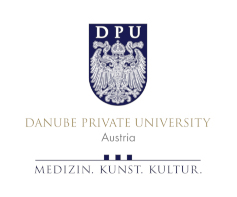RESOUND: Original sound at original venues
RESOUND 2024/25 presents great works of music in conjunction with a supporting programme that encourages a deeper understanding,
re-listening and rediscovery of these masterpieces. Haydn's ‘Creation’, Bach's ‘St John Passion’ and Beethoven's ‘Eroica’
will be performed in the instrumentations of their premieres, Schubert's songs in orchestral versions by Brahms, Liszt and
Reger. ‘Die Winterreise’ will be performed in a congenial version for tenor and string quartet. In cooperation with RESOUND,
Danube Private University (DPU) invites academics such as Rüdiger Safranski, Christiane Druml, Giovanni Maio, Michael Maul
and Karl-Josef Kuschel to give highly interesting introductory lectures.






